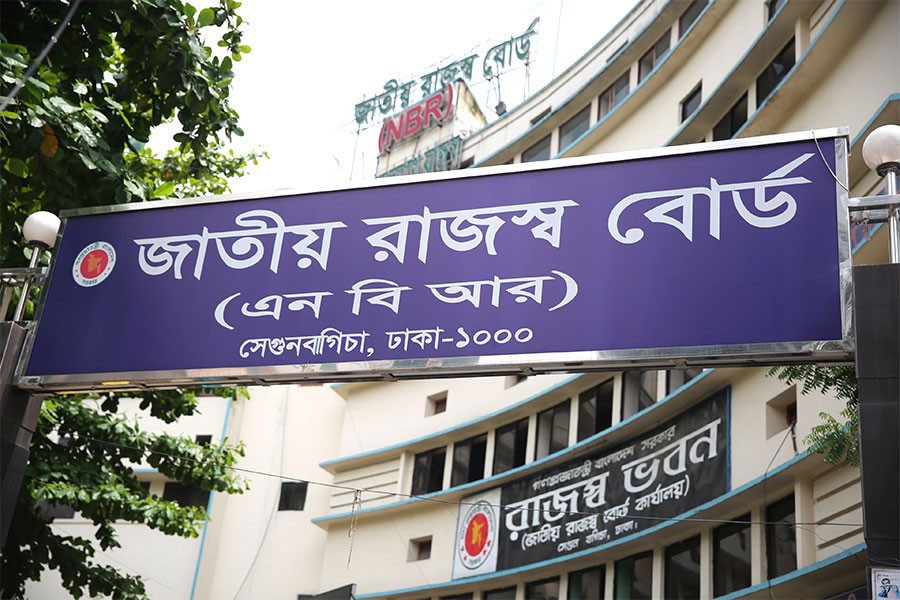Policy analysis of tax expenditures is imperative to narrow the "trust deficit" between taxmen and taxpayers, an expert said Monday while businesses pleaded for reconstitution of the revenue board.
The two suggestions came at a meet for tidying tax affairs as tax exemption and evasion as well as incapacity to tap potential taxes in relation to small tax-GDP ratio in Bangladesh came in for critical appraisal.
Speaking at the seminar on Income Tax at the Revenue Conference, Comptroller and Auditor General of Bangladesh Mohammad Muslim Chowdhury said the trust deficit still persistent in the country could be minimized through producing evidences by checking all transactions.
He said the National Board of Revenue (NBR) would have to strengthen digital infrastructure to interlink with multiple information sources, data mining etc.
The NBR organized the seminar on the occasion of two-day Revenue Conference at Bangabandhu International Conference Center (BICC) in Dhaka.
Business leaders demanded separation of tax-policy and- collection wings and expansion of tax net to boost revenues, instead of increasing tax burden on the existing taxpayers.
Mr Chowdhury suggested separating tax-policy wing from tax administration, and easing tax-refund procedures.
Md Tajul Islam, Local government and Rural Development Minister, told his audience that an analysis is required to find out ratio of tax realization and tax expenditure.
He said economic activities in the growth centres have got a boost in recent times, raising income in rural areas. And so expansion of tax net is an imperative.
"Policymakers need to have experience in field-level work so that they can prepare pro-people policy," the minister told the revenue meet.
NBR chairman and senior secretary of the Internal Resources Division (IRD) Abu Hena Md Rahmatul Muneem made a point that all of the Taxpayer Identification Number (TIN) holders do not have taxable income as people obtain the registration for different purposes.
He feels the urgency of automation of tax department but says there should be "efficient manpower to operate the machine".
Chairperson of Business Initiative Leading Development (BUILD) Nihad Kabir noted that large taxpayers are contributing major share of total tax revenue while a vast majority remained out of net.
"The NBR should compel those having taxable income to pay tax as the desired tax-GDP ratio would not be achieved only slashing the tax exemptions," she said.
Ms Kabir laid emphasis on public-private dialogue, carrying out fundamental reform and a paradigm shift in the revenue authority.
She also echoed the suggestion for evidence-based tax-policy formulation, separation of tax-policy and-collection wings and also reconstituting the NBR as an autonomous body, framing prospective tax measures, and simplifying dispute resolution on taxes.
Ms Kabir pointed out investors face difficulties preparing business plans for a lack of predictability of tax measures.
Between the years 2015 and 2019, more than 900 Statutory Regulatory Orders (SRO) had been issued by the board.
MA Momen, Vice President of the Federation of Bangladesh Chambers of Commerce and Industry (FBCCI), said the NBR should identify people having taxable income and adopt business-friendly approaches in taxing.
He said, "Efficiency of the tax department will increase if the government separates the tax policy and administration wings."
Former Income Tax Member Md Alamgir Hossain said the ratio of tax evasion is more than 2.0 per cent of GDP, which is higher than that of tax exemption.
"Taxpayers and business community have to come forward to cooperate with the NBR in raising the country's tax-GDP ratio," he told the meet.
Mr Hossain thinks the NBR has scope to narrow the tax evasion by plugging its loopholes.
Two Income Tax Commissioners-Md Iqbal Hossain and Iqbal Bahar-presented two keynotes on 'Role of Income Tax on Development Journey of Bangladesh and its Evolution' and 'Modernization and Future Plan of Income Tax'. NBR member Sams Uddin Ahmed delivered welcome note.
Asif Ashraf, director of Bangladesh Garment Manufacturers and Exporters Association (BGMEA), told the audience that tax benefit for the export industry contributed to the growth of green industry in Bangladesh.
"Currently, Bangladesh has 173 green factories, one of the highest in the world, as the NBR allows paying them corporate tax at a cut rate of 10 per cent," he added.


